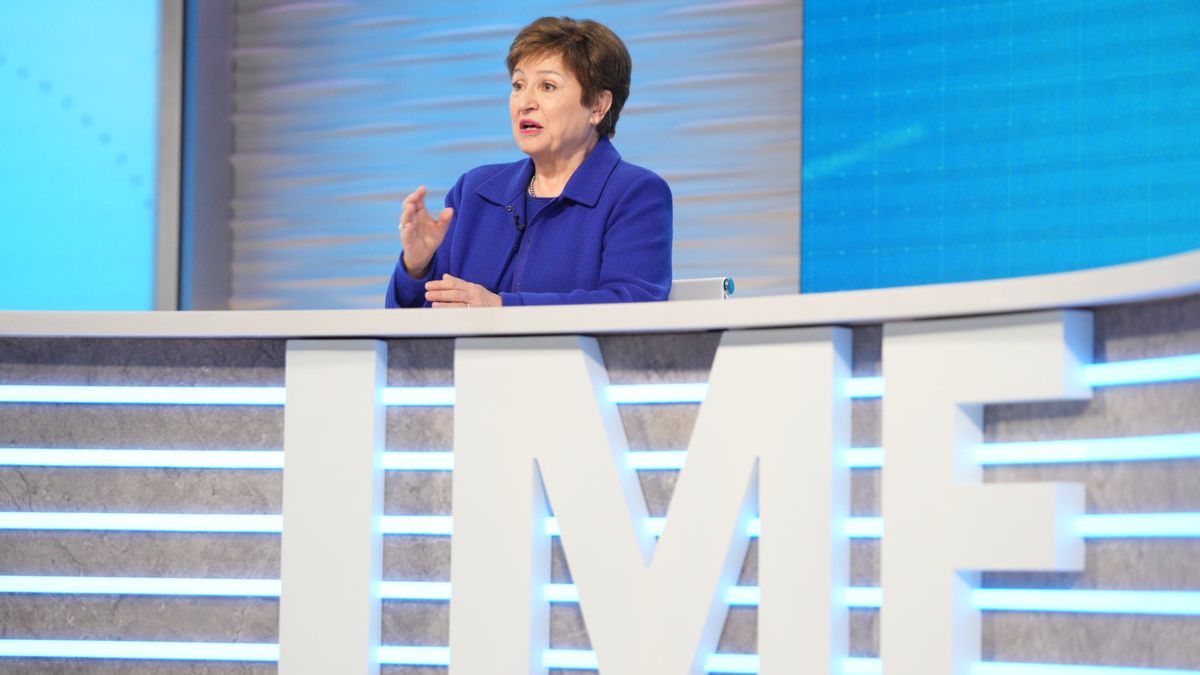JAKARTA – Recently IMF Managing Director Kristalina Georgieva delivered her speech on the future of money, cryptocurrencies, and central bank digital currencies (CBDC) last week at the Atlantic Council, Washington DC.
Considering that the central bank has conducted conceptual discussions about digital money, although it is still in the experimental stage. Georgieva said that it is still too early for a CBDC.
"It's still early days for CBDCs and we don't quite know how far and how fast they will go," she said.
However, the IMF itself explained that if a CBDC is designed properly, it has the potential to offer more advantages than cryptocurrencies.
“If CBDCs are designed with care, they can potentially offer more resilience, more security, greater availability, and lower costs than private (developed) forms of digital money.”
Georgieva continued CBDC could be superior because cryptocurrencies are not inherently supported and have high volatility. Even stablecoins like USDT and USDC that are dollar-bound are not quite a match for CBDCs.
“That is definitely the case when compared to unsupported crypto assets which are inherently unstable. And even better-managed and regulated stablecoins may not quite match up to a stable, well-designed central bank digital currency.”
VOIR éGALEMENT:
The IMF Managing Director revealed that currently there are around 100 countries that are exploring a central bank digital currency or CBDC. Georgieva mentions Dollar Sand in the Bahamas which uses the Proof of Concept (PoC) consensus algorithm from Sweden's Riskbank. Then there is also China's Digital Yuan. In addition, she also acknowledged that the US Federal Reserve had issued a report on the CBDC in the last month.
“The IMF is deeply involved in this matter, including through providing technical assistance to many members. The IMF's important role is to promote the exchange of experiences and support CBDC interoperability."
She asked each country to share experiences from the central bank that has designed digital money. This is because every country's economy is different. Therefore, the central bank must adapt its plans to the conditions in each country.
“There is no universal case for CBDCs because every economy is different… So central banks will have to adapt plans to their specific circumstances and needs.”
Georgieva further emphasized that “financial stability and privacy considerations are critical to the design of a CBDC.” She alludes to privacy concerns in many countries that are "potentially deal-breakers in terms of legislation and adoption of CBDCs."
Concluding her speech, the IMF Director concluded that “the history of money is entering a new chapter. Countries are seeking to preserve key aspects of their traditional monetary and financial systems, while experimenting with new forms of digital money.”
The English, Chinese, Japanese, Arabic, and French versions are automatically generated by the AI. So there may still be inaccuracies in translating, please always see Indonesian as our main language. (system supported by DigitalSiber.id)
















